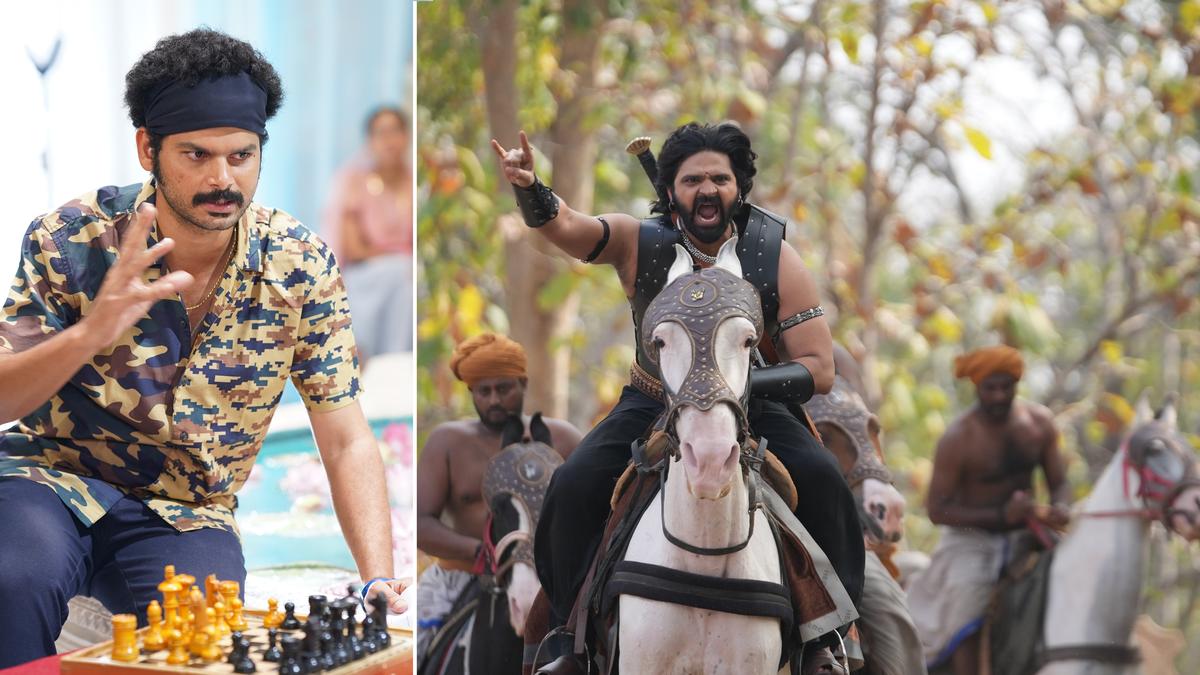
Director Hasith Goli on ‘Swag’: I was confident that Sree Vishnu can enact any number of characters
The Hindu
Director Hasith Goli on ‘Swag’: I was confident that Sree Vishnu can enact any number of characters. The Telugu film also starring RItu Varma and Meera Jasmine will release in theatres on October 4
Imagine an ancient kingdom that had a matrilineal society, with a queen calling the shots and male heirs being frowned upon. Somewhere down the line, the gender equation is shaken up by a man, marking the beginning of a patrilineal society and patriarchal norms. Hasith Goli, writer and director of Telugu film Swag, which releases in theatres on October 4, explores this hypothetical idea through characters played by Sree Vishnu, Ritu Varma, Meera Jasmine, Daksha Nagarkar and Sharanya Pradeep across different timelines.
Since the teaser and trailer of Swag indicate an out-of-the-box narrative, it becomes imperative to ask Hasith Goli what triggered the story. Taking time off for this interview amid post-production work, Hasith explains, “Going by the voices that speak up for gender equality on social media, we tend to think we are moving towards a more progressive society. Away from social media, we realise that gender disparity is widely prevalent. This was one of the observations that triggered Swag. There were a few other factors, but to discuss them before the film’s release might be a spoiler.”
Swag is Hasith’s second directorial venture after the comedy-drama Raja Raja Chora (2021). Collaborating again with Sree Vishnu, he was convinced that Sree Vishnu could pull off varied characters in different period settings. Gender issues might anchor the narrative, but Hasith wanted to make an entertaining, non-preachy film.
“When we ask someone about their lineage, they invariably talk about their father, uncles and grandfather and not their mother and grandmother. Though we have given pitru devathalu (departed ancestors) a male connotation, I gathered that the original idea of the term was not limited to men,” Hasith explains, adding, “A few pockets of Kerala and Assam continue to have matrilineal societies. I have also read about ancient cultures where women were the heads of the clans and made important decisions. It made me wonder how and when things changed.”
In the film, Ritu Varma as queen Rukmini Devi represents the female-dominant Vinjamara Vamsam while Sree Vishnu plays a chauvinistic Bhavabhuti Maharaja. “Be it male or female, when great power is given to someone for a long time, they become domineering. We explore serious emotions but I also wanted the drama to evoke fun. All the kingdoms and dynasties mentioned in the story are fictional.”
For the present-day scenario as well, Hasith preferred an unspecified urban city. Some production designs pertaining to the 1970s, ‘80s and ‘90s were period-specific, while for others, creative liberties were taken.
Hasith says that some female characters, including Ritu Varma, Meera Jasmine and Sharanya Pradeep are present in the king’s era as well as in the present; Daksha plays a character paired opposite one of the characters played by Sree Vishnu called Singareni, a wannabe influencer.





















 Run 3 Space | Play Space Running Game
Run 3 Space | Play Space Running Game Traffic Jam 3D | Online Racing Game
Traffic Jam 3D | Online Racing Game Duck Hunt | Play Old Classic Game
Duck Hunt | Play Old Classic Game











